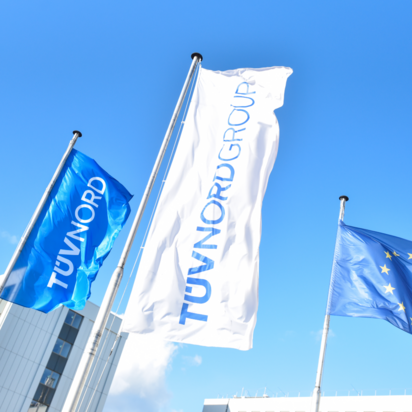Ammonia as an energy source for intercontinental energy trading


Energy: Energy Engineers prepares study for World Energy Council Germany on the potentials and challenges of using ammonia as an energy carrier as well as a transport and storage medium for hydrogen.
“Renewably produced ammonia will play a key role in the international trade of green energy between continents,” explains Carsten Rolle, Managing Director of the World Energy Council - Germany, on the occasion of the presentation of the new study ‘Ammonia as an energy carrier for the energy transition’ in Berlin today. According to the study, the market for renewable ammonia is estimated to grow by over 70% annually from 2023 to 2028. By 2030, the market volume will increase from currently around 0.3 billion US dollars to almost 18 billion US dollars in 2030”.
Ammonia can play an important role as an energy source in a climate-neutral global energy system. Germany and other countries in the European Union will have to import considerable quantities of hydrogen (H2). Conversion into ammonia offers significant logistical and economic advantages, not least for transportation over long distances. These include a high volumetric energy density, the ability to be transported as a liquid at temperatures as low as -33 °C and established logistics chains.
“Infrastructure for the production, transportation and storage of ammonia is already available in ports and industrial locations around the world. However, with a view to increasing ammonia production and use in the future, this infrastructure will probably need to be expanded,” explains Carsten Rolle, referring to the approximately 170 seagoing vessels and 140 ports for the export and landing of ammonia worldwide, as well as subsequent domestic infrastructures.
There are three options for the use of ammonia: 1. direct material use, for example in the chemical industry. This requires an appropriate infrastructure for landing, transportation and use. 2. direct thermal use, for example in ship engines, industrial processes or power plants. 3. ammonia can be converted back into hydrogen and nitrogen using cracking technology and the hydrogen released can be used. This could be interesting for areas of application in which it is difficult to build an infrastructure for the use of ammonia. However, the cracking process is very energy-intensive and must first be scaled up before it can be operated economically.
Thomas Kattenstein, author of the study at EE Energy Engineers, emphasizes: “Ammonia is already being used in large quantities in the fertilizer industry. Ammonia could replace fossil production paths as a decarbonization option and be used in particular as a carrier for hydrogen transport. It could also be used directly as a marine fuel and fuel for electricity generation.”
Carsten Rolle adds: “In addition to political control mechanisms such as OPEX and CAPEX funding instruments, internationally coordinated legislation, globally mutually recognized certification systems and international partnerships along the value chain are important prerequisites for a rapid market ramp-up of hydrogen and ammonia. The latter must be quickly established and expanded in order to exploit synergies and jointly develop new infrastructures. It is crucial to lay the foundations for these measures today in order to get the hydrogen economy off the ground quickly.”
Link to the study: https://www.weltenergierat.de/wp-content/uploads/2023/12/Weltenergierat_Ammoniakstudie_2023.pdf
About the World Energy Council - Germany e.V.
The World Energy Council - Germany represents all energy sources and technologies through its members and is the independent voice for international energy issues in Germany. Its aim is to bring the global perspective into the national debate and to shape the energy system of the future. As part of the World Energy Council, the World Energy Council represents the German energy system in the largest international network of the energy industry. Further information: https://www.weltenergierat.de
About EE ENERGY ENGINEERS:
EE ENERGY ENGINEERS GmbH, based in Gelsenkirchen, offers consulting and engineering services for the development of the hydrogen economy and other branches such as mobility, municipal heat planning and circular economy. It is part of the TÜV NORD GROUP and the HydroHub, the hydrogen initiative of TÜV NORD GROUP companies. Further information: https://www.energy-engineers.de
Contact person for queries:
Maira Kusch / T: (+49) 30 2028 1626 /E: kusch@weltenergierat.de
Founded over 150 years ago, we stand for security and trust worldwide. As a knowledge company, we have the digital future firmly in our sights. Whether engineers, IT security experts or specialists for the mobility of the future: in more than 100 countries, we ensure that our customers become even more successful in the networked world